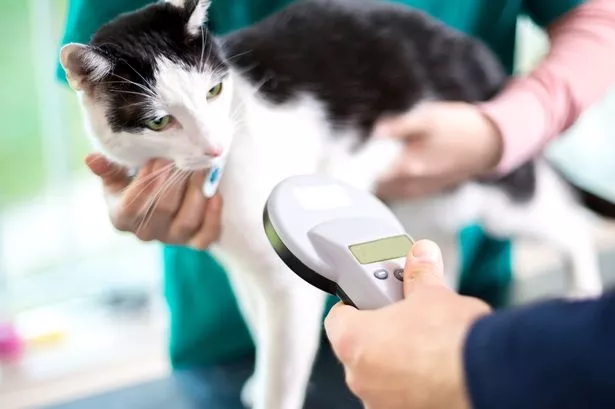British pet owners are being given a four-month warning over new compulsory legislation coming into force later this year. The new ruling, which will be put in place on June 10, 2024, means all owners must have their cats microchipped.
The legislation is hoped to make it easier for lost or stray pet cats to be reunited with their owners and returned home safely. The ruling was laid in Parliament back in March last year.
According to the government, there are more than nine million pet cats in England. As many as 2.3 million are unchipped, meaning it would be very difficult to reunite them with their owner if they get lost or stolen.
The new microchipping rules follow a Government call for evidence and consultation on the issue in which 99% of respondents expressed support for the measure. The introduction of compulsory cat microchipping was a manifesto commitment and an Action Plan for Animal Welfare pledge.
The new rules mean cats must be implanted with a microchip before they reach the age of 20 weeks and their contact details stored and kept up to date in a pet microchipping database. All owners must have their cat microchipped by June 10, and owners found not to have microchipped their cat will have 21 days to have one implanted, or may face a fine of up to £500.

It will not be compulsory for free-living cats that live with little or no human interaction or dependency, such as farm, feral or community cats. Owners with cats that are already microchipped should ensure their details are up to date.
Environment Secretary Thérèse Coffey said: "Cats and kittens are treasured members of the family, and it can be devastating for owners when they are lost or stolen. Legislating for compulsory microchipping of cats will give comfort to families by increasing the likelihood that lost or stray pets can be reunited with their owners."
Chief Veterinary Officer Christine Middlemiss said: " I am pleased that we are progressing with our requirement for all cats to be microchipped. Microchipping is by far the most effective and quickest way of identifying lost pets. As we’ve seen with dog microchipping, those who are microchipped are more than twice as likely to be reunited with their owner.
"By getting their cat microchipped, owners can increase the likelihood that they will be reunited with their beloved pet in the event of it going missing."
Cats Protection’s Head of Advocacy, Campaigns and Government Relations, Madison Rogers, added: " Cats Protection is delighted that pet cats in England will be given the same protection as dogs when it comes to microchipping. The charity regularly reunites owners with their much-loved cats, and in most cases this is only possible thanks to microchips.
"No matter how far from home they are found, or how long they have been missing, if a cat has a microchip there is a good chance that a lost cat will be swiftly returned home."
The process of microchipping involves the insertion of a chip, generally around the size of a grain of rice, under the skin of a pet. The microchip has a unique serial number that the keeper needs to register on a database. When an animal is found, the microchip can be read with a scanner and the registered keeper identified on a database so the pet can quickly be reunited with them.
The commitment to microchipping is part of a wider Government effort to build on our existing world-leading standards. Since publishing the Action Plan for Animal Welfare in 2021: we have brought in new laws to recognise animal sentience, introduced tougher penalties for animal cruelty offences and brought forward a ban on glue traps.


















